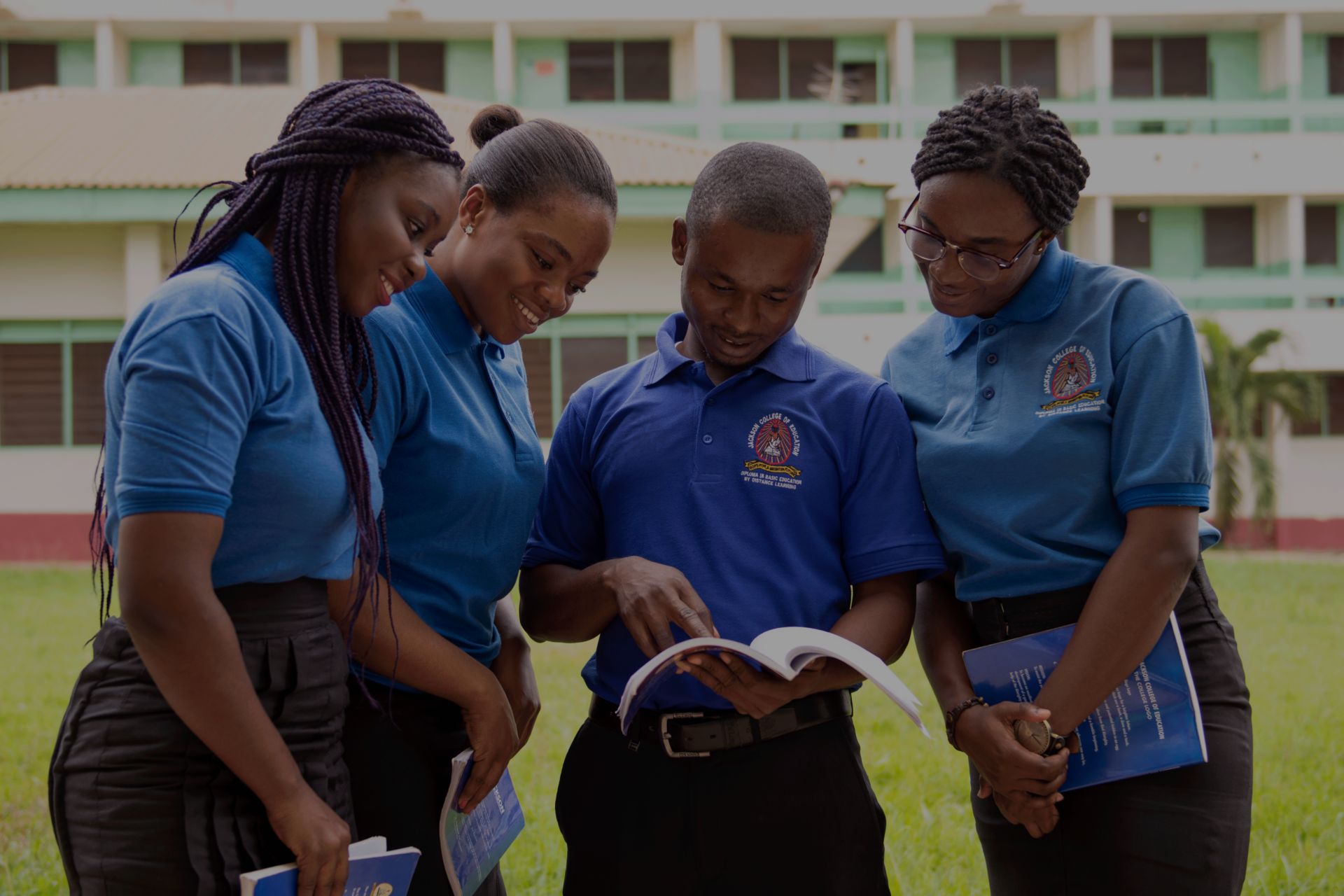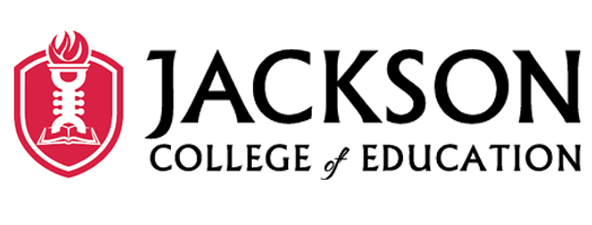Academics

About Us
Our teacher training programmes have been specially tailored to provide quality instruction necessary to meet society’s teacher demands and expectations.
Our programmes are structured to harmonise with the national teacher training curriculum approved by the Ghana Tertiary Education Commission, and are aimed at developing teachers who are excellent creative thinkers, problem solvers and social changers. Our strategic pedagogy will help students to learn through the development of thinking, research, personal study and lifelong learning skills.
We rely on professionals who use the most current research and practice, to ensure that your training is relevant to your future career or further studies, and to produce teachers who are capable of dealing with today’s fast-changing world and technological advancement.
Our mode of learning is the blended learning, which encompasses traditional classroom learning (face-to-face) and synchronous and asynchronous online learning. This module was adopted to cater for the different learning needs of our Diverse Learner populations, to keep pace with the fast-changing global digitisation of today’s learning and working environments, and to mitigate the spread and impact of the global pandemic (COVID-19) on our students, tutors and the society as a whole.
SPECIAL PROVISIONS
- The University of Education, Winneba, (UEW) is the Affiliate University.
- The Institution is accredited by the Ghana Tertiary Education Commission (GTEC) and recognised by the Ministry of Education (MoE), Ghana Education Service (GES), National Teaching Council (NTC) and other relevant stakeholders.
- A student may access the Student Loan Trust Fund (SLTF), Ghana Scholarships Secretariat or any educational scholarship facility if (s)he meets their criteria.
- A semester shall comprise of a minimum of 14 tuition days, 2 revision days and 3–4 days of assessment (examination).
- The College shall administer tuition through blended learning. This involves face-to-face tuition and online tuition using approved learning management system(s).
- Students are required to have internet-enabled devices such as a laptop, tablet or smartphone to enable personal participation in online tuition and activities.
- The first face-to-face for every semester shall be organised immediately after registration (unless otherwise stated).
- Learning centres shall be created or closed down as and when necessary.
- Learning modules shall be provided by the College.
- Students shall wear the College T-shirt over black trousers/skirt for males and females respectively, and their ID cards, for every face-to-face lectures and examinations.
- All students shall pay a specified amount to acquire their ID cards and other mandatory products and services.
- Students shall pay an approved amount of money per copy when they request for student services such as attestation letters, introductory letters, transcripts, etc.
- A student, upon completion of the programme, may access the National Service Scheme (NSS) and obtain a GES posting based on prevailing terms and conditions.
- All Graduates of the College are required to pass a professional examination to qualify for a Teacher’s Registration Number in order to practice as a professional teacher in Ghana.
Equality for all students
- Equal opportunity is given to all in respect of rules, regulations, disciplinary procedures, teaching and learning, positions, sports and any other aspects, regardless of race, sex, age, religious, social or political affiliations.
Probation
- All students are considered to be on probation for the entire period of the programme, and may be withdrawn at any time for misconduct.
Our Programme Options
THE BACHELOR OF EDUCATION (BASIC EDUCATION) PROGRAMME
Rationale
The current policy directives for the Bachelor of Education in Basic Education (Early Grade, Upper Primary and JHS Specialisms), are geared towards the training of a teacher who would be able to teach at the early grade, upper primary and the junior high school levels.
Key Features
- It is a 4-year programme, spanning eight semesters with earnings in Bachelor of Education in Basic Education for Upper Primary, Early Grade and JHS Specialisms.
- It will enable student-teachers who graduate with a Bachelor of Education in Basic Education or Early Childhood, to upgrade themselves to the Masters degree at any relevant tertiary institution.
- It will establish a judicious balance between content knowledge, pedagogical knowledge and pedagogical content knowledge as well as theoretical knowledge and teaching skills.
- It will train teachers to be facilitators of learning.
- It will also produce teachers who are creative researchers in the classroom, i.e solving problems through action research.
THE POST-GRADUATE DIPLOMA IN EDUCATION (PGDE) PROGRAMME
Rationale
The Jackson College of Education, in its efforts to bring quality life-long learning experiences to aspiring and qualified persons, ascribes to utilise its expertise and resources to contribute towards the development of human resources that meet the needs and challenges of pre- tertiary and tertiary education in Ghana, in particular. The main thrust of the College, in offering a Post-Graduate Diploma in Education programme, through teaching, research and other educational engagement, rests on the resolve of the College to contribute to the training of non-education degree holders and personnel, with the view to turn them out into first-class professional teachers, educators and facilitators for various and diverse educational establishments.
Key Features
The following are the features of the 1-year Post-Graduate Diploma in Basic Education:
- It is a 1-year, six semester programme aimed at providing applicants with the requisite pedagogical knowledge and skills to be more effective and competent teachers, lecturers, tutors, trainers and educational facilitators at their job places.
- It will enable participants to become familiar with modern principles and methods of teaching in an efficient manner in the delivery of curricula to a variety of students.
- It will equip participants with good pedagogical practices in the implementation, design, delivery and evaluation of the relevant curricula in place or cut out for their establishments, be they educational or otherwise.
- It will train participants to be facilitators of learning.
- It will produce facilitors of learning who have technology and information literacy and are able to integrate technology into teaching.
ADMISSION & REGISTRATION OF NEW STUDENTS
- Acceptance of the admission offer goes with full payment of tuition fees for the academic year: Upon being offered admission, an applicant is only considered to have accepted the offer after (s)he has paid specified tuition fees and registered online, not later than the date stipulated by the College. Tuition fees paid are neither refundable nor transferrable.
- Tuition fees, as well as other fees should be paid STRICTLY according to the format or procedure detailed in candidate’s admission letter. Any other means of payment shall not be recognised or accepted, except for students who are on institutional scholarships who may be allowed to pay by cheque.
- Failure to meet the deadline for payment of the fees shall be deemed a rejection of the admission offer, and applicant will lose his/her place to another applicant.
- If it is subsequently discovered and established that a student does not possess the qualifications by virtue of which he/she has been offered admission to the College, he/she shall be withdrawn from the College and barred from entering or seeking admission from the College.

